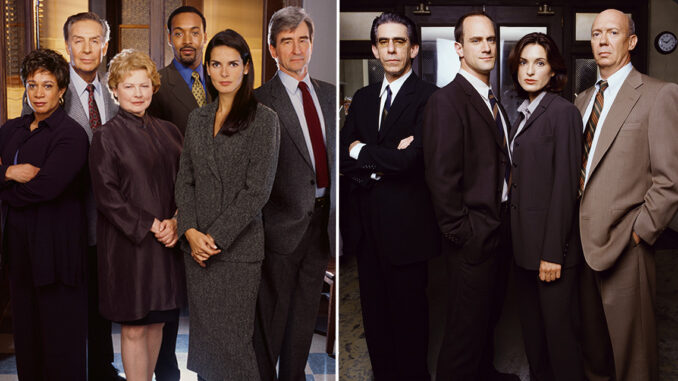
The hallowed halls of the 16th Precinct, under the ever-watchful gaze of Captain Olivia Benson, have borne witness to countless horrors, triumphs, and the slow, grinding machinery of justice. As Law & Order: SVU sails into its 25th season, a quarter-century landmark, the audience’s appetite for the unexpected, the emotionally devastating, and the truly shocking remains as keen as ever. The whispers and theorizing around a "shocking plot twist" in Season 25 are more a testament to the show's enduring capacity for surprise than a reflection of a single, widely recognized bombshell that has definitively dropped and been "explained" in the traditional sense. Instead, the true "shock" of SVU's 25th year often lies not in a sudden, M. Night Shyamalan-esque reveal, but in the slow, agonizing unspooling of long-held traumas, the relentless mirroring of societal woes, and the profound, often quiet, shifts within its most beloved characters.
To understand the nature of an SVU "shocking plot twist," one must first acknowledge the show's particular narrative rhythm. Unlike a mystery box series, SVU rarely hinges on "who did it" or a grand, overarching conspiracy. Its shocks are character-driven, systemic, or deeply emotional. Think of Stabler’s abrupt departure after Season 12, Rollins being shot in the line of duty, or Benson’s kidnapping and torture by William Lewis. These weren't plot twists in a conventional sense; they were seismic events that irrevocably altered the fabric of the show and the psyches of its protagonists.
In Season 25, the "shocking plot twist" is less a singular event and more a cumulative pressure cooker of lingering anxieties and long-gestating character arcs. The most palpable and consistently "shocking" element has been the deep dive into Olivia Benson's continued struggle with trauma and her yearning for connection. For years, fans have debated and hoped for a definitive resolution to her personal life, be it with Stabler, a new partner, or simply finding true peace. Season 25 has delivered a different kind of shock: the revelation that even after decades of therapy and growth, the scars of her past—her mother's abuse, her own assaults, the weight of the cases—are not merely healed wounds but active forces shaping her present.
The "Maddie Flynn" storyline, for instance, became a visceral exploration of Benson’s deepest fears and protective instincts. It wasn't a twist that Maddie disappeared, but the shocking intensity with which Benson re-experienced her past trauma through the search, blurring the lines between professional duty and personal anguish. This wasn't a typical SVU "case of the week"; it was an excavation of Benson's soul, forcing her to confront her own vulnerabilities, her desire for a child, and the profound, almost spiritual, connection she forms with victims. The "twist" here is the realization that Benson's healing is not linear, and her capacity for empathy, while her greatest strength, remains her greatest vulnerability. The shocking implication is that Olivia Benson may never truly escape the shadows of her life, and that her fight for justice is inextricably linked to her ongoing personal battle.
Another "shocking twist," subtly woven into the season, is the continued unraveling of systemic failures and the complexities of justice in the modern age. SVU has always been a mirror to society, reflecting evolving conversations around consent, victim blaming, and the intricacies of the legal system. Season 25, perhaps more acutely than ever, has highlighted the profound frustration of justice delayed, denied, or complicated by bureaucracy and deeply ingrained prejudices. The "shock" is the realization that even a quarter-century later, despite greater awareness and new laws, the victims still face insurmountable odds, and the heroes of SVU often find themselves battling a system as much as they battle perpetrators. This ongoing struggle, the cyclical nature of the crimes, and the persistent difficulty in securing true accountability, is a quietly devastating twist in itself – a reminder that the world outside the precinct walls remains stubbornly resistant to change.
Furthermore, the return of familiar faces, like Amanda Rollins, though not a "plot twist" in the traditional sense, carried a surprising emotional weight that resonated deeply. Her decision to leave, and then to return for specific, impactful appearances, underscored the idea that no character, no matter how beloved, is static. The "shock" was seeing how she had changed, how her new life as a professor was both a blessing and a shadow of her past, and how her absence fundamentally altered the squad's dynamic. It was a twist on expectation, proving that character evolution can be as compelling as any dramatic revelation.
In conclusion, the "shocking plot twist" of Law & Order: SVU Season 25 is not a single, easily explained event, but rather a multifaceted tapestry of subtle revelations and profound character studies. It is the shocking endurance of Olivia Benson’s trauma, proving that even heroes bear indelible scars. It is the shocking persistence of societal injustices, reminding us why the show, after 25 years, remains tragically relevant. And it is the shocking depth of its characters, who, like the world they inhabit, are constantly evolving, facing new demons, and finding unexpected ways to define justice. The true twist is that after all this time, SVU continues to shock us, not with cheap thrills, but with its unflinching honesty about the human condition and the relentless pursuit of light in the darkest of places.
